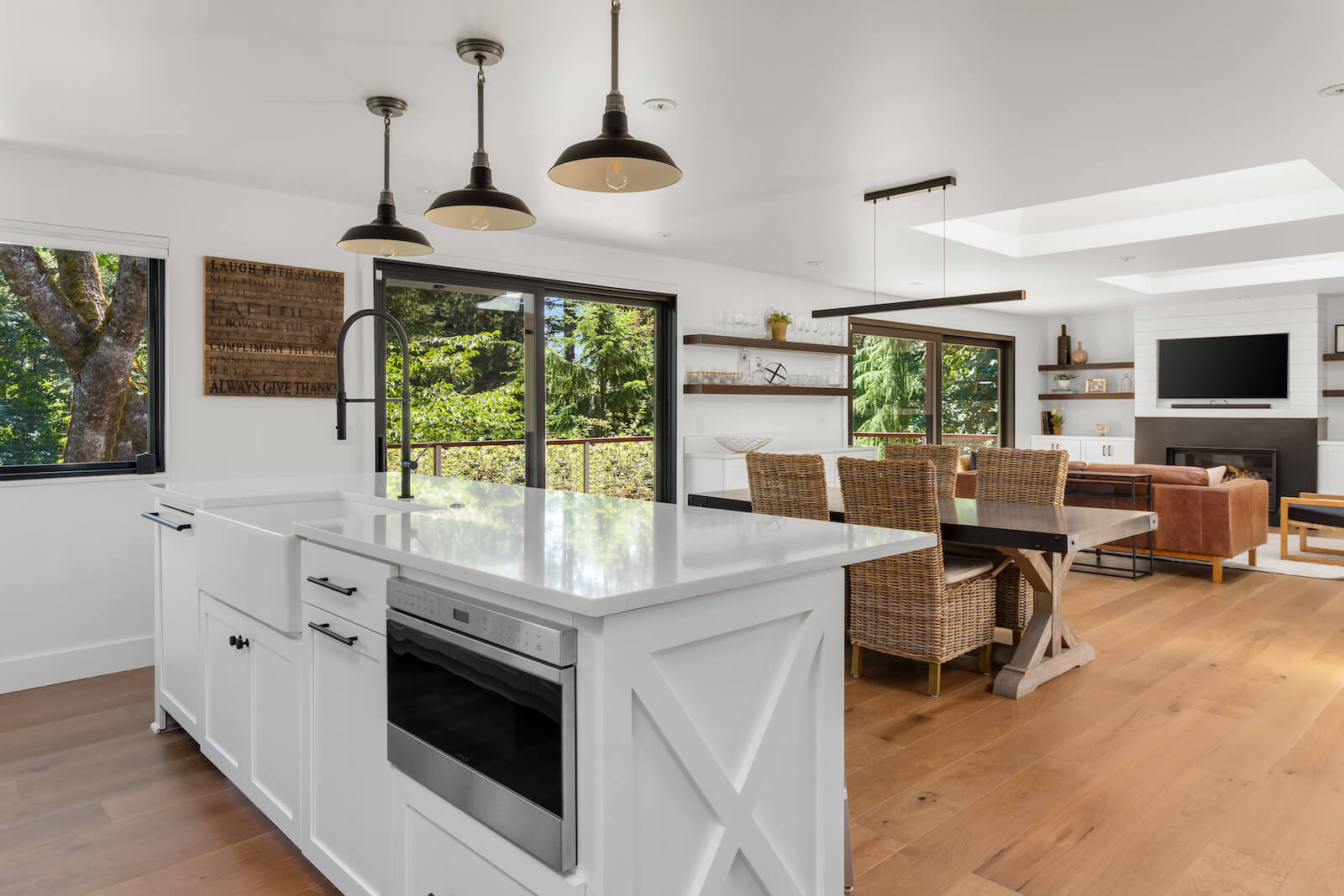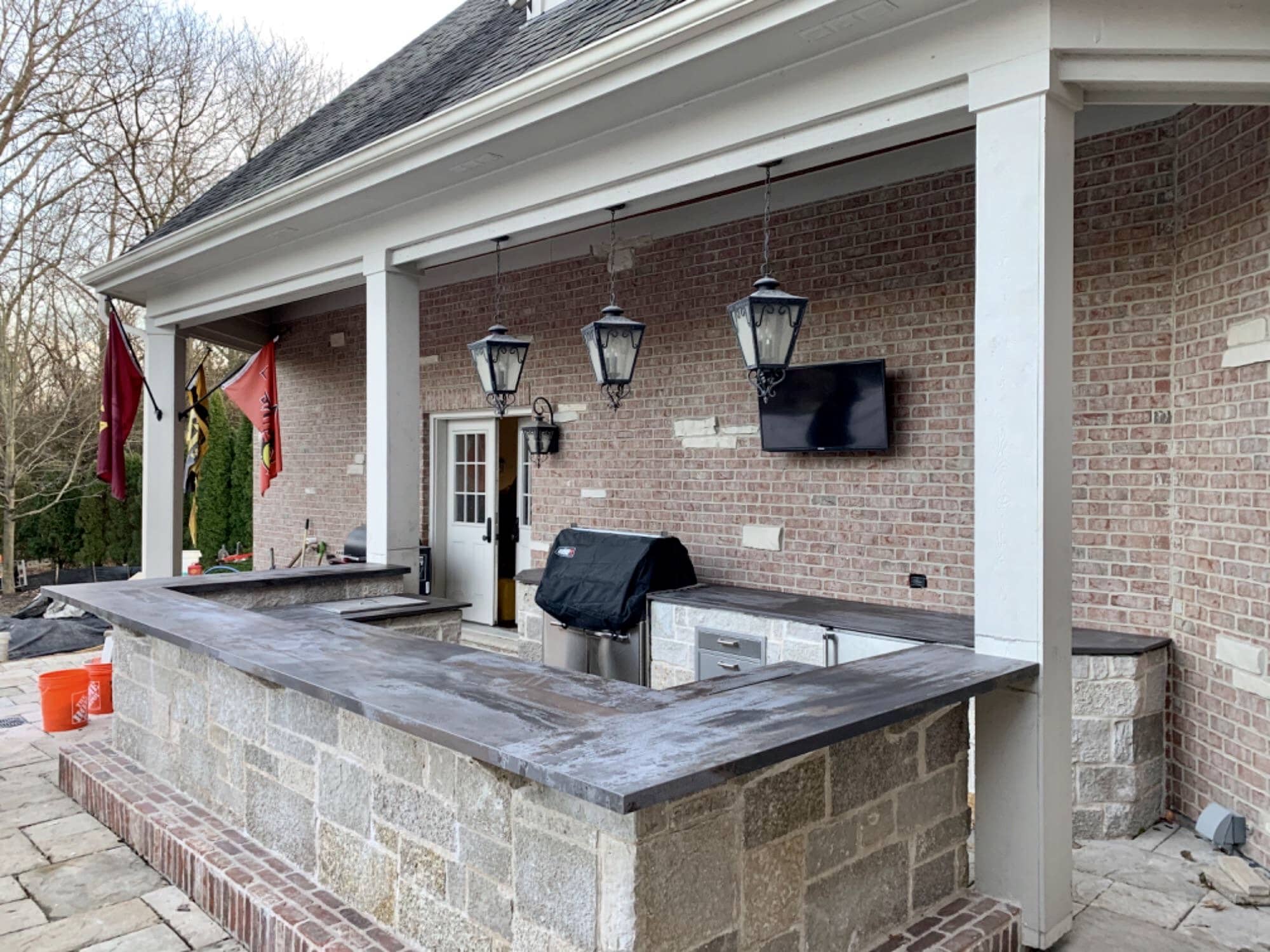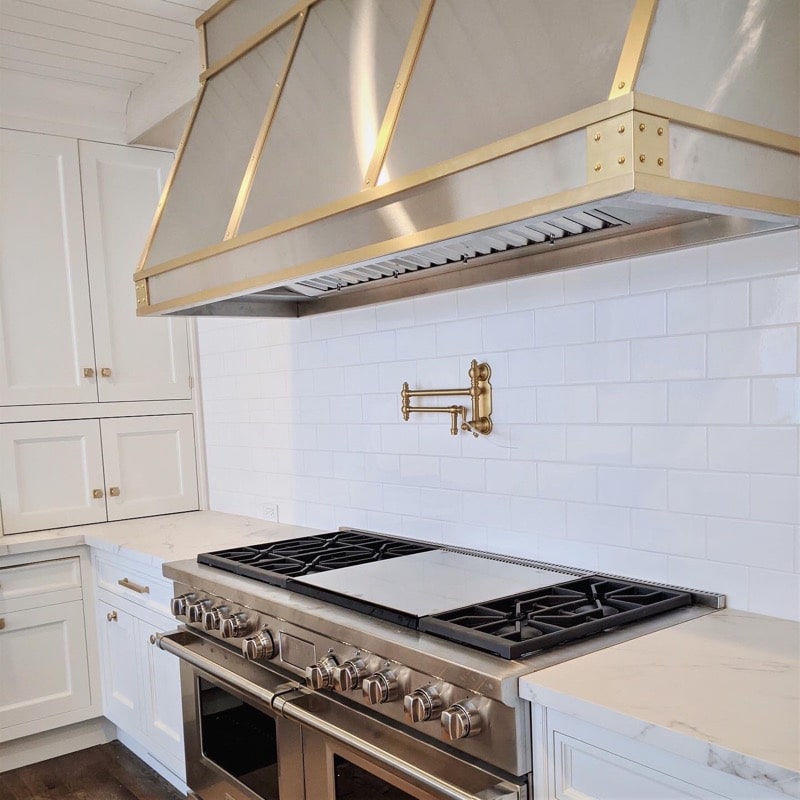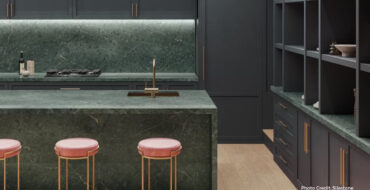Quartz vs. Granite Countertops: A Comprehensive Comparison
One question we hear all the time is, “What is the difference between quartz and granite? Which one is better and what are the benefits for each?”
At The Countertop Factory Midwest, we have all of the information you need! As a granite and quartz supplier in Chicago, we will fill you in on all of the benefits regarding both surfaces so you can feel well-educated about each countertop material before proceeding with your design project.
Understanding Quartz and Granite
What is Granite?
Granite is a 100% natural stone that derives directly from stone quarries, is cut down to thin, manageable sizes, and then polished to a fine finish and fabricated as a countertop.
What is Quartz?
Quartz, not to be confused with the natural stone quartzite, is an engineered stone that is made up of approximately 95% of ground natural quartz and 5% polymer resins.
Comparing Key Features

Appearance
Granite: Granite countertops are known for their natural, unique patterns that are a direct result of their geological formation. Each slab of granite is distinct, featuring intricate veining, specks, or swirls that vary in color and texture. These variations make granite an ideal choice for homeowners looking for a one-of-a-kind, luxurious aesthetic. Granite is available in a range of natural colors, from deep blacks and blues to light grays, whites, and even pinks. However, because it’s a natural material, matching slabs for larger installations can sometimes be challenging.
Quartz: Quartz countertops, on the other hand, are engineered using crushed quartz stone combined with resins and pigments. This allows for a more consistent and customizable appearance. Unlike granite, quartz offers a wider array of colors and patterns, including options that mimic the look of natural stone. This consistency is particularly appealing for modern or minimalist kitchen designs. Additionally, quartz can be manufactured in vibrant colors and designs that are not naturally found in stone, offering versatility for homeowners with unique aesthetic preferences.

Durability
Granite: Granite is highly durable, making it a popular choice for busy kitchens. Its natural hardness allows it to resist scratches and heat effectively. You can place hot pans or dishes directly on the surface without worrying about damage, making it a practical choice for those who frequently cook. However, granite is porous, which means it can absorb liquids if not properly sealed. This can lead to stains from oil, wine, or acidic substances if spills are not cleaned promptly.
Quartz: Quartz is an engineered product that combines natural stone with resins, making it non-porous and highly resistant to stains. Unlike granite, quartz does not require sealing, and it resists mold, bacteria, and mildew, making it a hygienic option for kitchens and bathrooms. While quartz is incredibly strong, it is not as heat-resistant as granite. Placing hot pans directly on a quartz surface can result in discoloration or cracking, so the use of trivets or hot pads is recommended.

Maintenance
Granite: Granite countertops require regular maintenance to preserve their beauty and functionality. The porous nature of granite means it needs to be sealed upon installation and resealed every 1-2 years to prevent staining and water damage. Cleaning granite is straightforward, requiring only mild soap and water, but harsh cleaners should be avoided as they can strip the sealant. Over time, small chips or cracks may occur, especially around edges or corners, but these can usually be repaired by a professional.
Quartz: Quartz countertops are prized for their low-maintenance qualities. Since quartz is non-porous, it does not require sealing or resealing, making it a hassle-free option for busy households. Cleaning quartz is as simple as using a mild detergent and a damp cloth, and its resistance to stains ensures long-lasting beauty. Unlike granite, quartz surfaces are not prone to chipping, but care should still be taken to avoid direct impacts with heavy objects. Additionally, because quartz is not as heat-resistant as granite, it’s essential to protect the surface from prolonged exposure to high temperatures.
Comparison Summary
| Feature | Granite | Quartz |
|---|---|---|
| Appearance | Unique, natural patterns and veining; limited to natural colors | Consistent designs with a wide variety of colors and patterns |
| Durability | Scratch and heat-resistant; requires sealing for stain resistance | Non-porous and stain-resistant; less heat-tolerant |
| Maintenance | Requires periodic sealing; prone to chipping but repairable | No sealing required; easy to clean and highly durable |
We hope this information helps you broaden your knowledge on granite and quartz countertops. For more information about natural stone or general countertops in Chicago, Illinois, contact us to learn more!





